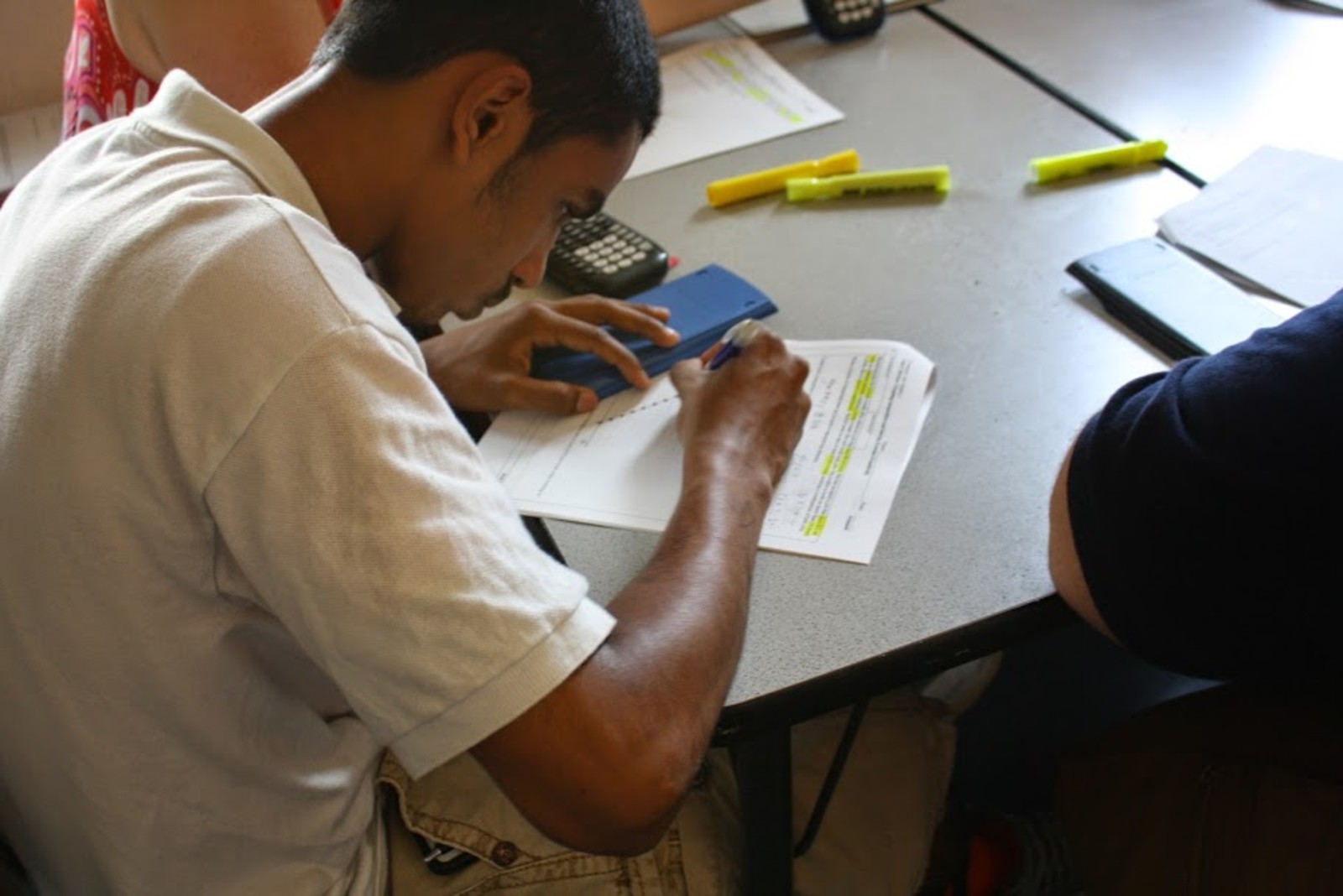Students caught in algebra whirlpool, says report

Algebra is a gateway course—the foundation for higher-level math and a critical hurdle that New York students must clear in order to graduate. Eighth- and 9th-graders who do well in it are steered to more advanced courses that prepare them for college and good jobs. Yet in New York City, nearly half of all students fail the Algebra Regents exam on the first try, and thousands end up re-taking the exam multiple times, caught in what educators call the "algebra whirlpool."
A new policy brief, the third in a series on math and science education by Insideschools and the Center for New York City Affairs, examines factors that fuel the algebra whirlpool. It also highlights what some schools are doing to help struggling students who lack the mathematics foundation to master algebra by 9th grade pass the course and move on to higher-level math.
Reporters from Insideschools visited more than 100 middle and high schools and found that with the rollout of the Common Core standards, many educators have been thinking about new ways to teach algebra and to structure class time so students fully understand the material. We also found that there is heightened attention in school to getting algebra instruction right, given the importance that higher–level math plays in college readiness and careers.
Unfortunately, educators worry that new standards and Common Core–aligned exams may increase the number of students failing algebra, which would limit their exposure to advanced math and potentially drive down graduation rates.
“Math skills need to be taught in a coherent progression and the Common Core has changed what that progression looks like. Teachers and principals say they have been doing their best to anticipate what the state’s Common Core–aligned achievement tests and exams will look like, gleaning what they can from the national standards and from the materials provided on the New York State Department of Education’s teaching website EngageNY," write report authors. "But middle school teachers find themselves rushing through the curriculum to make up ground lost in elementary school on fractions and other fundamental concepts."
"In high school, teachers are dealing with the fact that the algebra 1, geometry and algebra 2/trigonometry standards have been reorganized across the board. This would be fine if teachers were given clear guidance on what is expected of students at each grade level, but that isn’t happening," according to the report.
While it’s too soon to tell if some schools' attempts to improve algebra instruction will yield better outcomes for students in the long run, the report highlights a few promising efforts.
One-year, double dose math : Park East High School frontloads extra time for math in 9th grade. All students take two classes of math a day, both algebra and “Math Applications,” which is designed to shore up students’ foundational skills. Top Park East students may take Advanced Placement Calculus, but even the struggling students take four years of math and the most experienced teachers work with the students who need the most help.
Two-year algebra : Some high schools, especially larger ones that have staff and space to accommodate multiple class tracks, offer a two-year algebra course to struggling students who need the extra grounding to learn the material and pass the Regents exam. For example, Midwood High School, serves a wide range of students—some in the highly selective and competitive Medical Science Institute, and others who are new immigrants from war–torn countries with little formal education. The students with poor preparation are assigned to a four–semester algebra course, while the stronger students take a traditional one-year course, or start off in geometry, having passed the Regents exam in middle school.
Open access to advanced math : At Sunset Park High School, the administration believes strongly that students must be exposed to advanced math, even if they struggle to pass algebra. All 9th–graders take both algebra and statistics. Whether or not they pass the Algebra 1 Regents exam, all 10th–graders take geometry, all 11th–graders take algebra 2 and all 12th–graders take pre–calculus. Students of different abilities are placed in the same class. The upside to this approach: Though one out of every three freshmen fail the Algebra 1 Regents, eventually nearly all students pass it and graduate having had practice doing higher-level math too. A downside: It is very difficult to teach a math class to students of varying abilities and meet all of their needs.
Read the full report: “Rough Calculations: Will the Common Core Algebra Regents Threaten NYC’s Graduation Rates?” See also other policy briefs released this summer: What's Wrong With Math and Science in NYC High Schools (PDF) and Conquering Teachers' Math Anxiety (PDF).
Looking for some fun science and math activities you can do with your own child? See our "Parents Guide to Math and Science" and our Free Programs section.
Please Post Comments